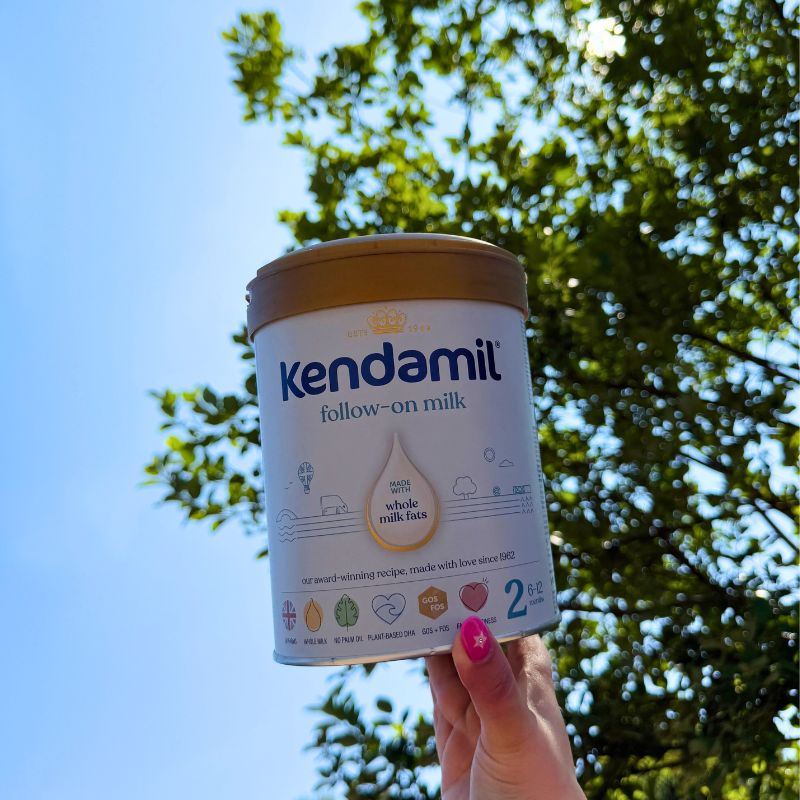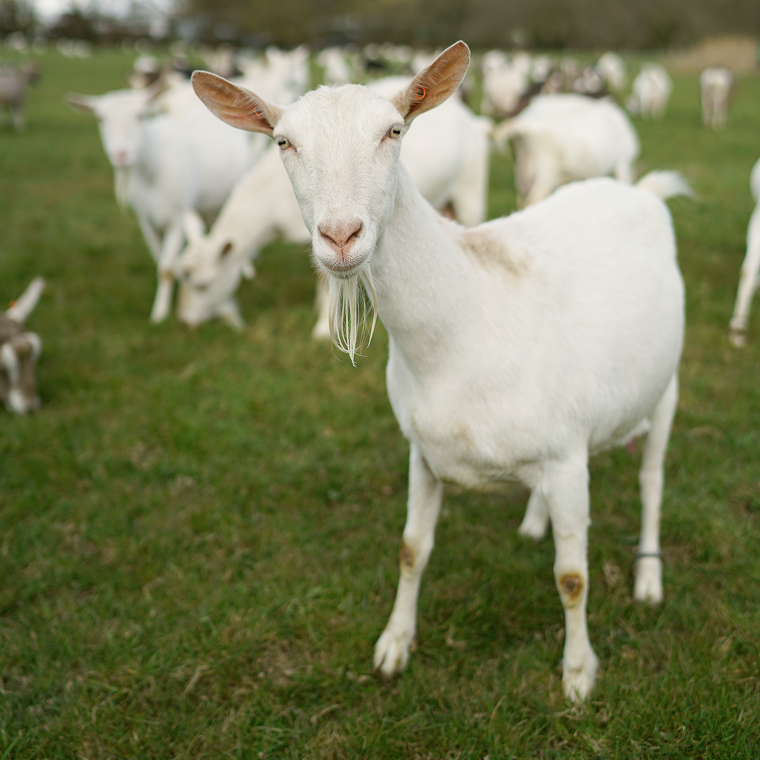The surge of interest in gut health is more than a passing trend; it's due to a significant shift in our understanding of the important role our gut plays in our overall health and wellbeing. Our gut isn’t just the digestive hub of the body - it houses a vibrant community of microorganisms collectively known as ‘the microbiome’. These microscopic inhabitants, ranging from bacteria to fungi, are very important for many bodily functions; from digestion, to immune response, and even our mental wellbeing.

Childhood is a time of rapid growth and development, and a healthy gut plays a crucial role in supporting your child's overall wellbeing. Not only does it impact digestion, but it's also closely tied to your child's immune system. In this blog, we'll explore why your child's gut health is vital and how you can improve it through a balanced diet, including fibre-rich foods, and digestive supplements.
The Importance of Gut Health in Children
Imagine your child's gut as a bustling city filled with tiny helpers. These little workers help with digestion, make sure your little one gets all the good stuff from food, and they play a massive role in keeping your child healthy. This is the gut microbiome! From the moment a baby is born, their previously sterile digestive system encounters a load of new microorganisms during birth, which starts the complex process of microbiome establishment. Subsequent interactions with the environment, the chosen method of feeding (whether breast or formula), and different external factors collectively contribute to developing your baby’s microbiome. The microbiome can aid in digestion, nutrient absorption, and even immune response. When your child's gut is in top form, they are better equipped to fend off infections and stay in optimal health.
Understanding the Gut-Brain Axis Development
Okay, so there's this fancy term called "gut-brain axis," a term used to describe the connection between your child's digestive system and their mental health. A healthy gut is essential for the development of this axis, and it can significantly influence your child's mood, behaviour, and cognitive abilities. Essentially, a happy tummy can make your little one feel good, think better, and even be happier!
Building a Strong and Healthy Immune System
A well-functioning gut enhances the immune system's ability to recognise and fight off harmful pathogens. So, by maintaining a healthy gut, you're not just ensuring smooth digestion, but also indirectly fortifying the immune response, making you more resilient against illnesses and infections. It's a win-win situation, where a happy gut equals a robust immune system, providing an extra layer of protection for your child's well-being.
Foods That Can Help Improve Baby's Gut Health
Nurturing your child's gut health is a crucial aspect of their overall well-being, and it begins right from the start—during breastfeeding and continues through the weaning process. Breast milk is nature's perfect food, providing an ideal balance of nutrients and beneficial microbes that support the development of a healthy gut microbiome.
When you start weaning, it's so important to nurture your child’s gut health through the introduction of a balanced and diverse diet.
Iron-rich foods: Begin by incorporating iron-rich foods like fortified cereals, lean meats, and legumes, as iron supports not only overall growth but also contributes to a healthy gut environment.
Fruits & veggies: The vibrant array of fruits and vegetables not only provides essential vitamins and minerals but also furnishes fibre, promoting digestive well-being.
Dairy products: Introducing full-fat dairy or suitable alternatives ensures a source of calcium, beneficial not just for bone development but also for maintaining a balanced gut microbiome.
Protein: Protein-rich foods such as meats, eggs, and plant-based sources contribute to muscle development and support a robust digestive system.
Wholegrains & healthy fats: Wholegrains, with their energy-boosting properties, coupled with healthy fats from foods like avocados and fish, further nourish your child's developing gut.
As toddlers progress beyond 12 months, it’s important to maintain their balanced diet to foster continued growth and a thriving gut microbiome. You can do this by providing iron-rich foods, diverse fruits and veggies, and age-appropriate finger foods. Ensure a steady intake of calcium through full-fat dairy or alternatives for bone development.
Keeping a balanced diet for your little one will keep things moving smoothly, so your child's tummy stays happy! Stay vigilant for allergies, introduce new foods gradually, and consult with your GP if you have any concerns.
Understanding The Benefits Of Probiotics And Prebiotics On Baby’s Gut Health
Now, let's talk about how you can help your littlest ones develop their microbiome. What you might most commonly hear people talking about are "prebiotics" and "probiotics", and they're like the superheroes of the gut world.
Prebiotics, found in onions, garlic, and bananas, act as non-digestible fibres that nourish the beneficial bacteria in the gut. Fructo-oligosaccharides (FOS), galacto-oligosaccharides (GOS), and trans-galacto-oligosaccharides (TOS) are the most common ones you might see in ingredient lists, but there are lots of foods rich in them too. Onions, whether cooked or raw, and garlic, are both rich in inulin, which is great for balancing gut bacteria. Bananas, with their resistant starch, offer a convenient and easy on-the-go snack option. When your little one is weaned, you can easily boost your baby's meals, such as adding sautéed onions to pureed vegetables or mashing bananas into their oatmeal.
So what about “probiotics”? These are actually live organisms that help populate the gut with friendly bacteria. In foods, yoghurt and kefir are fantastic options, offering live microorganisms that support a healthy gut microbiota. You can introduce plain yoghurt with live active cultures and kefir gradually into your baby's diet, creating different meals like yogurt and fruit, or kefir smoothies. You can also use a digestive supplement to help populate the tummy with friendly bacterias.
Tips On How You Can Improve And Support Baby’s Gut Health
Emphasise Whole Foods: Introduce a variety of age-appropriate whole foods such as mashed fruits, steamed vegetables, and soft grains to provide essential nutrients and promote a strong digestive foundation.
Promote Adequate Sleep: As your baby gets older, try and get a consistent sleep routine for them, as sufficient and good quality sleep is vital for their overall well-being, including digestive health.
Consider Digestive Supplements: Consider digestive supplements to foster a balanced gut environment.
Integrate Anti-Inflammatory Foods: If your baby has started on solids, incorporate baby-friendly anti-inflammatory foods like pureed turmeric, ginger-infused foods, and small portions of fatty fish to help soothe their developing digestive system.
By applying these tips to your baby's care, you can contribute to the promotion of a happy and healthy digestive system during this critical stage of development. Always consult with your GP before making significant changes to your baby's diet or routine.
Your child's gut health is a big deal, and now you know why. By feeding them the right foods and taking care of their tummy, you're giving them the superpowers they need for a healthy, happy life. It's like a little gift of good health and joy. Your little one’s tummy will thank you!

















